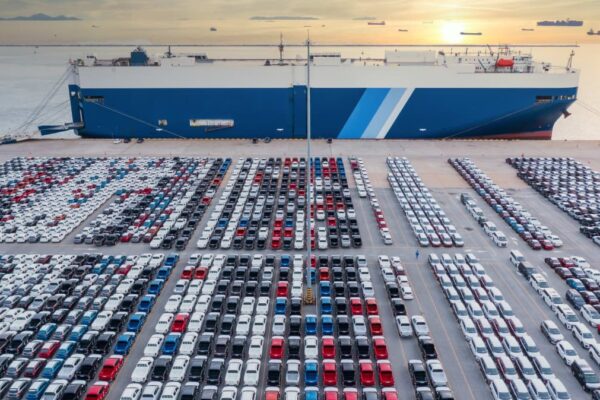The Department of Agriculture, Fisheries and Forestry (DAFF) has defended itself against claims it is responsible for delays in the importation of cars. In February, an online mouthpiece for the automotive industry, DRIVE, accused DAFF of causing delays. Last week, DAFF issued a statement saying, “Current delays to the delivery of new vehicles are a direct result of the capacity of the commercial companies to manage the surge in contaminated vehicles arriving at the border.”
Statements from the Auto Industry
An article by Joshua Dowling posted on the DRIVE website makes the following statements:
“More than 60,000 new motor vehicles – equivalent to almost one month worth of deliveries – are caught-up in a quarantine traffic jam on a scale never seen before in Australia. The unprecedented bottleneck has forced thousands of customers stuck in the queue to wait even longer for their new car.
“At least two-dozen car-carrying ships are anchored offshore or are in transit between ports – creating a pile-up at docks around the country – as expert cleaning teams struggle to treat vehicles for serious biosecurity hazards such as seeds and pests that threaten Australian agriculture.
“Stevedores who specialise in car transport told Drive it normally takes 24 hours – working around the clock – to unload a vessel carrying 3000 new cars, disembarking approximately 125 new cars per hour.
“However, quarantine cleaning teams can only process vehicles at a rate of nine cars per hour – during normal business hours – as the vehicles need to be thoroughly checked and cleaned.
“At this rate, each quarantine cleaning team can only process about 350 new cars per week; Australians buy new motor vehicles at a rate of 21,000 cars per week.”
Statements from DAFF
In a notice from DAFF posted on their website, they make the following statements:
“Since 2021, Australia’s ports have seen an 88 percent increase in new vehicles arriving with biosecurity risk material contamination. Over the same period, there has been a 17 percent increase in the total number of new vehicle imports into Australia.
“Biosecurity risk material must be removed from contaminated vehicles prior to being released. This cleaning is carried out by commercial companies.
“Contamination includes soil, plant debris, seeds and live insects not present in Australia. These are real and serious threats to Australian agriculture and our natural environment. National biosecurity standards at the border remain unchanged.
“Current delays to the delivery of new vehicles are a direct result of the capacity of the commercial companies to manage the surge in contaminated vehicles arriving at the border.
“There are no delays associated with Department of Agriculture, Fisheries and Forestry responsibilities in this process.
“Biosecurity Officers undertake surveillance to check for biosecurity risk material on vehicles arriving Australia and confirm the effectiveness of the cleaning undertaken by commercial companies prior to the release of vehicles.
“There are no resourcing shortages with Biosecurity Officers undertaking the surveillance processes, nor are there any delays associated with inspections by Biosecurity Officers.
“Some vehicles may be stored in paddocks or parking lots overseas where they are inadvertently contaminated prior to export.”
Biosecurity risk material that has been found in or on new vehicles since July 2022 and their potential impact if they were to establish in Australia, includes:
– Brown Marmorated Stink Bug (BMSB)
– Siam Weed
– Exotic snails
Colless Young is a Licensed Customs Broker and International Freight Forwarder. We offer professional advice on all aspects of import procedures, including clearance through Customs and Quarantine, at all Australian ports and airports. Our logistics services cover air and sea freight, including exports, warehousing and trucking.

